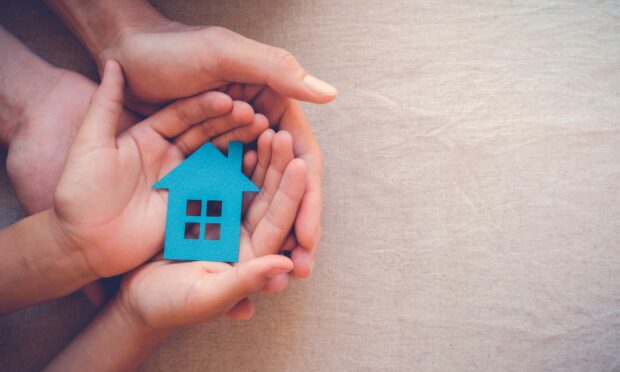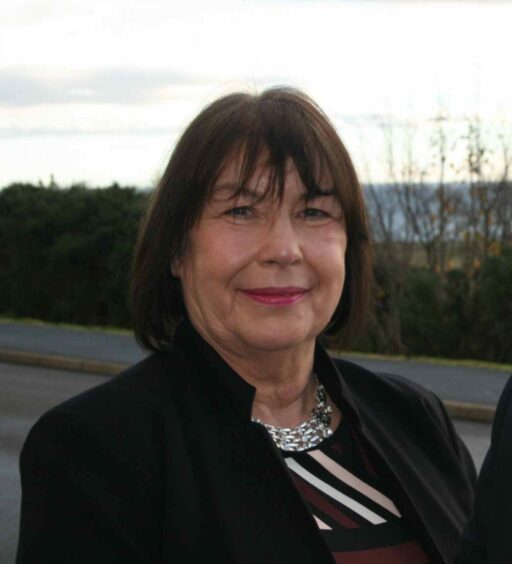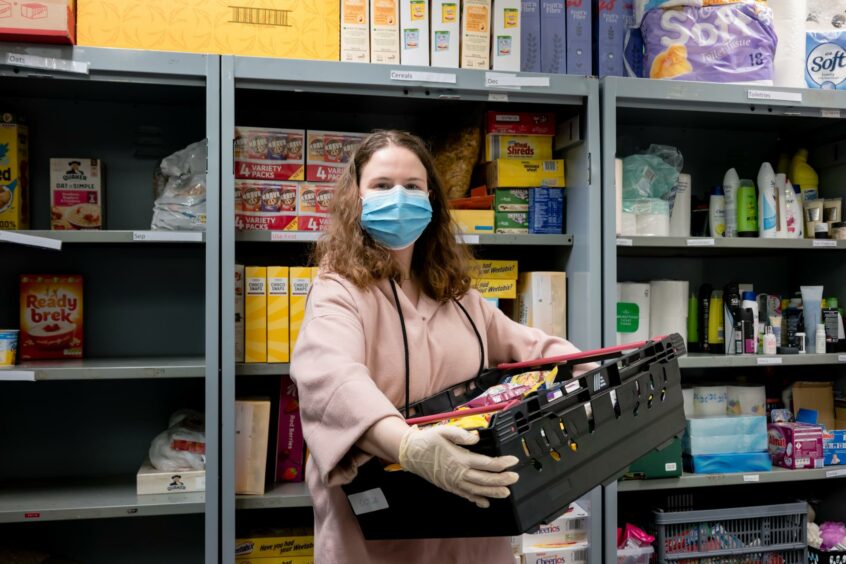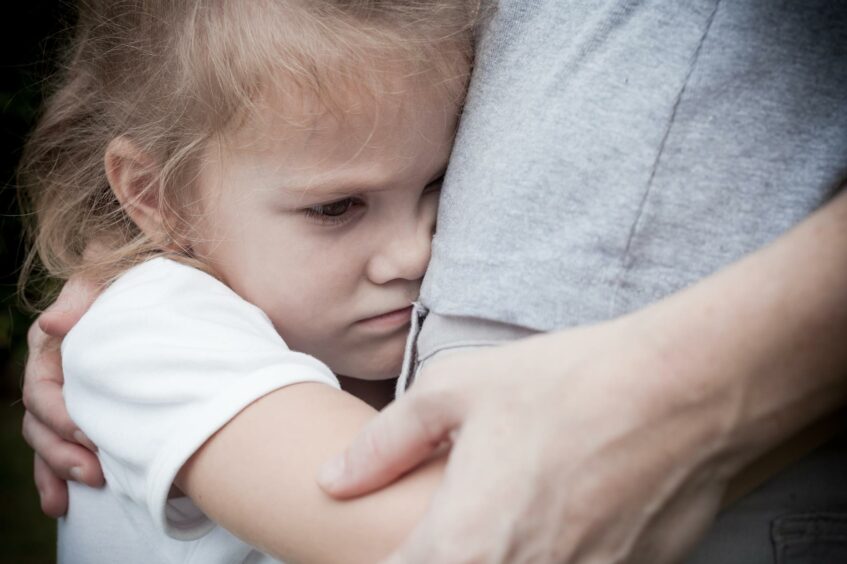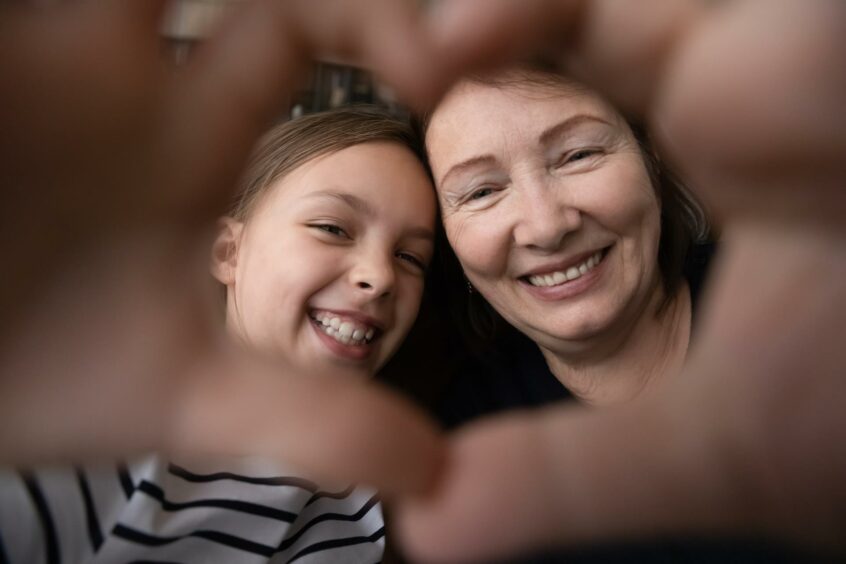Highland Council has twice the number of children going into residential care than the national average.
There are 466 children in the care system in Highland, which at 1.2% is in line with other councils. However, 18% of those children are in residential care, against a national average of less than 10%.
And nearly a third of those children are sent to care homes outside Highland, at a cost of £230,000 each. That’s not to mention the emotional cost.
Most of the council’s money for social care is invested in residential children’s homes. But senior councillors say that the council has a moral obligation to focus more on early intervention and community support.
We spoke to a couple about the fear and frustration they experienced in a system they called “broken”.
Having had difficulties with both sides of care–as parents and as children–they say that change can’t come soon enough.
Changing the engine
Linda Munro, Highland Council’s retiring chairperson of health and social care, agrees that change is long overdue.
“We need to change the way we work in Highland,” says Councillor Munro, who explains that most of the council’s money is invested in residential children’s homes.
This means there’s little funds left to provide essential early intervention. Intervention that could prevent a drama becoming a crisis.
“There’s very little middle ground in Highland and that’s just wrong,” she says.
“Because the services aren’t there, we buy another house and put the children into residential care. Morally, we should be keeping these children with their own families and their own communities as much as we can.”
Linda emphasises that this is not a lack of effort on the part of social workers. Highland Council has a large team of well trained and empathetic staff, she says.
However, without early support for families, small issues become serious issues very quickly. With very few support services – especially in rural areas – social workers often have to make difficult decisions to keep children safe. Often, that decision is residential care.
Changing the engine
In Highland, 1.2% of children are ‘looked after’ – a figure that’s around the national average. However, 85 out of 37,718 are in residential care, against a national average of 9.8%.
And 30% of Looked After Children are sent away from Highland due to a chronic shortage of foster care and specialist support.
These figures show the stark reality for Highland’s vulnerable children and families, but change is never easy.
“It’s like trying to change the engine of a plane in mid-flight,” says Linda. “We don’t get to land and think ‘how can we do this better?’ because every day we have children in need of help and support.”
In other words, the money is already tightly tied up with the running costs of the residential units. If the money is simply withdrawn, where do the children go?
Transformational change takes considerable time – time that politicians on a five-year election cycle don’t have at their disposal.
We need action
However, the Highland charity sector is running short on patience. Gillian Newman, policy lead for Inspiring Young Voices, also retired earlier this year.
Gillian told the P&J: “I’m retiring in a few weeks and I feel utterly despondent.”
In her final meeting of the health committee, she told the council that early intervention is nothing new. “That was the vision 15 years ago,” she said. “We don’t need redesign, we need this to be delivered on the ground.
“Let’s not redesign the wheel; let’s get it rolling in the right direction.”
But what is the right direction, and how does Highland get there?
Both Linda and Gillian say communities have the answer.
“We have to find a way to get the money into the services you need, in the place where you live,” says Linda.
For example, parents (or a single parent) struggling with teenagers, ageing parents and demanding jobs. This scenario can escalate rapidly if the right support is not in place.
The support that can really make a difference is often practical, such as helping to tidy up the house or do the school run.
Where is the village?
In days gone by, that role was often fulfilled by grandparents, aunties and cousins. Today, parents are increasingly isolated from their ‘village’. However, the pandemic brought some unexpected green shoots of hope.
“Our society has changed but our need for support has not,” says Linda. “I hope that support will come from strengthening communities. We saw how much neighbour helped neighbour during Covid.
“I honestly thought we had lost that moral compass but it was absolutely there. The community was up and off and fleet of foot before the council and the NHS were off the starting blocks.”
What if, instead of pouring money into residential care, Highland Council invested in community-based support for children and families?
“That is where the answers lie,” says Linda.
She says services should be practical, and above all, human. “Not every bit of support has to be an -ology. It can be a real person.”
Gillian agrees. “The best early intervention is to listen to people, believe them and care for them,” she says. “Sadly that’s not consistent right now. We are overwhelmed at the front line and bureaucracy gets in the way. The human response sometimes isn’t there at the beginning.”
One family’s story of abuse and hope
We spoke to one Highland family who have lived that reality. Michelle and her partner Alex (names changed to protect identities) have experienced both sides of the care system, and describe it as “broken.”
Five years ago, Michelle was living in England with her partner and two daughters. One morning, she discovered bruising on her young daughter’s body. She took the tot to hospital and doctors immediately suspected domestic violence. Both girls were taken into the care system in 2018.
“I don’t have anything good to say about the system,” says Michelle. “I’d hate anyone to go through what I went through. When my daughter got hurt, I couldn’t answer where her injuries came from. Although he had been verbally abusive to me, I couldn’t see that it was domestic violence. I don’t know why.”
Michelle acknowledges she was isolated and vulnerable at the time, with “no real friends.”
“When it went to court, it turned out he had bitten my daughter. From then on they didn’t give me a chance, they were just removed from me, and that was it.
“If I had realised what was going on, 100% I’d have left, but it is so scary. I tried to fight for them back, but I had no-one.”
‘I thought they’d take my boy away’
Since then, Michelle has gone on to have a son with Alex. The couple worked with local social workers to demonstrate that their son is safe and well looked after. Now, Home Start is helping them to build a more hopeful future.
“We voluntarily placed our little boy in temporary foster care for four months, while they did assessments, and after four months he was home,” says Michelle. “To begin with, I didn’t trust the social. I thought they were negative and would take my boy away. But they did give us a chance.”
The couple had rehabilitation sessions and intensive support to help their son settle into family life.
“Home Start have been brilliant. We keep in touch a couple of days a week, and I take my little boy to a baby group they run. It’s support for me and my partner with our mental health. I can message them to speak if I feel down. Someone will come round and we can talk or go out for a walk. I was scared to go to groups in case people didn’t talk to me, but they never leave you out.”
Michelle would like to see more formal counselling made available, with separate sessions for men and women to share their experiences. She also says practical sessions such as parenting advice and cooking lessons would be helpful.
“It’s not that I can’t cook, I can cook simple meals, but they have been giving me recipes to try. It would help get Mums and Dads out and mixing, getting ideas from other people.”
Alex’s story
Alex himself had a traumatic upbringing in care, bouncing between 86 different foster carers and various children’s homes. Initially taken into care after his dad sexually assaulted him at two years old, he says he went on to suffer further sexual abuse in the care system. When he raised the alarm, he was simply moved on.
Alex’s experience relates specifically to England, and a number of years ago. Since moving to Scotland, he says he’s been able to access the help he so desperately needed.
“Your head is more mashed up when you come out than when you went in.”
When it comes to children’s homes, he doesn’t mince his words. “The care system is meant to care for you but I don’t think it does that,” he says. “Your head is more mashed up when you come out than when you went in.”
Alex believes he should have been allowed to stay with his mother and supports the idea of early help for families.
“My sister stayed at home with my Mum and she has a nice life now. She didn’t have the issues I had. My Mum tried her hardest but she was up against a brick wall.”
However, Alex says family support should come from the community and people with lived experience.
“I think people are more trusting of other organisations, such as Home Start and community groups. They should be involved closely but report back to social services.”
Advanced training for carers
At the end of the day though, as Alex puts it: “Not all parents want to be parents.”
Where the child is unsafe in parents’ care, Alex suggests a role for specially trained foster carers.
“Many foster carers are lovely people but they aren’t experienced in how to deal with really traumatised kids,” he says. “I had a foster carer for a month and they couldn’t cope with my behaviour so they moved me on.”
Alex suggests advanced courses to equip foster carers with the skills they need to help young people.
For the children, access to counselling is crucial, both during and after they leave care.
So far, Alex and Michelle have found children’s care services very helpful in Highland. They are working closely with social workers to support their son, and Alex is finally receiving the counselling and support he sought for 15 years in England.
Both say that Home Start has been a godsend.
“At Home Start, I’m in a father’s class and we talk about our struggles and support each other,” says Alex.
As both Gillian and Linda suggest, it’s not the “-ologies” that make the difference – it’s the real human connections.
“I talk to other young people on social media who have been through the care system, and I think I can get through to them, because I’ve been there,” says Alex. “It helps to talk to people who really understand.”
More from the Schools & Family team
How can you help your child deal with bullies at school? Kids and experts share their tips
Pregnant women left feeling ‘isolated and anxious’ by Covid restrictions
Nursery inspection reports: How does the childcare in your area rate?
